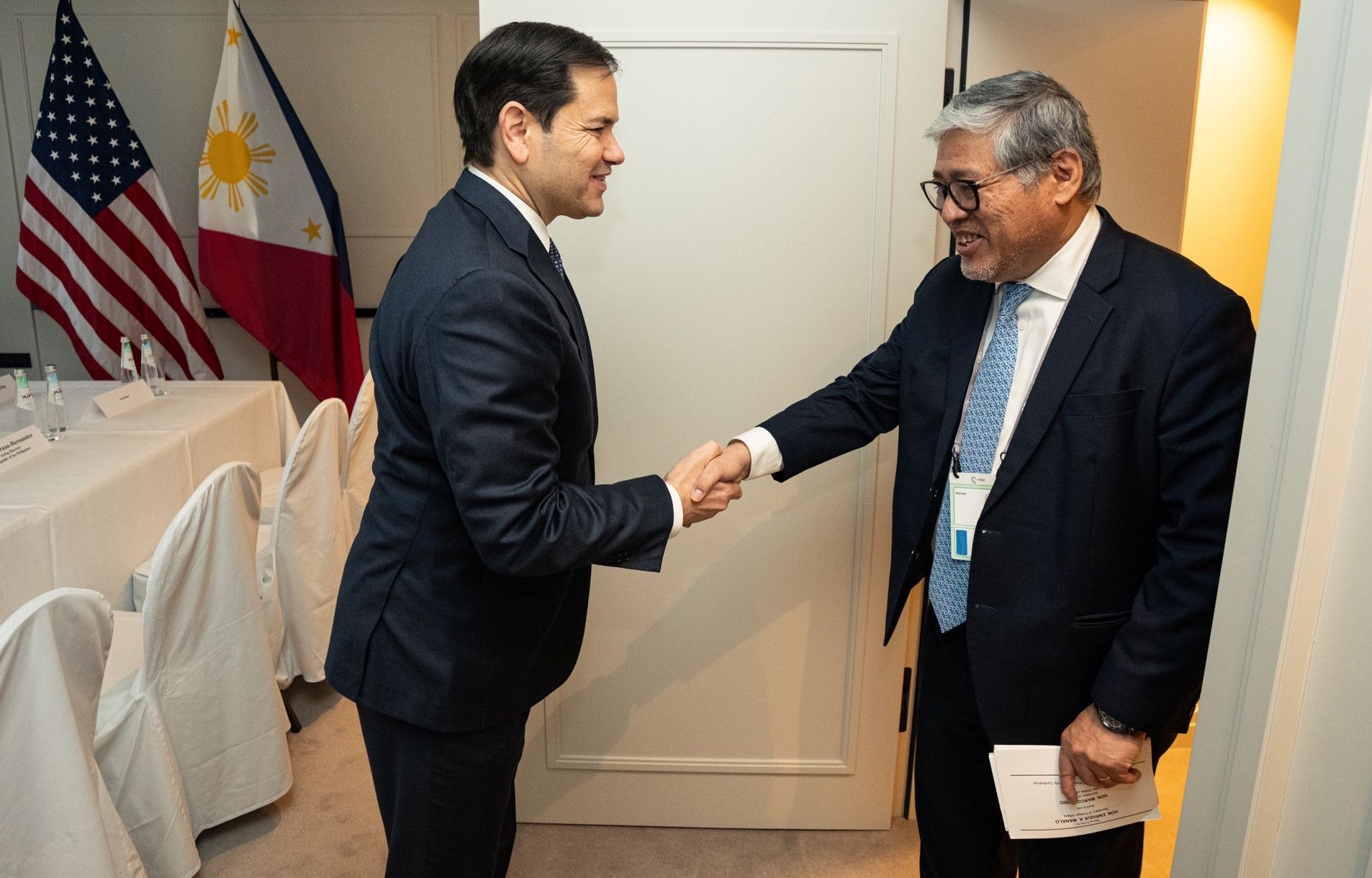Could a recent meeting on the sidelines of the Munich Security Conference between Secretary of State Marco Rubio and his Philippine counterpart Enrique Manalo be the beginnings of a de-escalation in the troubled waters of the South China Sea?
There are only hints in the air so far. But such a shift by Washington (and a corresponding response by the Philippines and China) would be important to calm the waters and mark a turn away from the U.S. being sucked into what could spiral into a military crisis and, in the worst-case scenario, a direct U.S.-China confrontation. But to be effective, any shift should also be executed responsibly.
The State Department spokesperson’s comments on February 14 about the meeting reiterated familiar points on “bilateral coordination addressing China’s destabilizing actions in the South China Sea” and “reaffirmed U.S. commitment to the United States-Philippines Alliance.” A U.S. readout of an earlier Rubio-Manalo call on January 22 was more expansive, speaking of China’s “dangerous and destabilizing actions” undermining “regional peace and stability” and being “inconsistent with international law.” The readout also reaffirmed Washington’s “ironclad commitments to the Philippines under our Mutual Defense Treaty.”
Intriguingly however, both sets of comments did not repeat the key assertion — first made by then-Secretary of State Mike Pompeo in 2021 and subsequently reaffirmed multiple times by the Biden administration — of the Mutual Defense Treaty extending to “armed attacks on Philippine armed forces, public vessels, or aircraft, including those of its Coast Guard, anywhere in the South China Sea.”
The omission may simply be an oversight. But it is important to keep the overall strategic context in mind. A radical U-turn in the Ukraine theater and various other administration moves have indicated that Trump is not averse to a major reorientation of U.S. grand strategy. It would be highly premature to label the new approach as “Restraint,” but the shift on Europe is telling. A recognition of the hard realities of interests and a move away from self-defeating framings such as “democracy v. autocracy” would also be a good thing for the United States to embrace in East and Southeast Asia.
However, there is much less reason to believe that the Trump team will aim for a grand reset with China. Washington’s push to confront China economically has, if anything, only escalated. Trump has appointed several China hawks in the National Security Council and the State Department, none of whom are expected to counsel a reset.
However, the Pentagon now includes some Restraint-oriented voices. One, Andrew Byers, the new deputy assistant secretary of defense for South and Southeast Asia, recently suggested (in a paper on U.S.-China relations co-authored with J. Tedford Tyler) “removing U.S. military forces or weapons systems from the Philippines in exchange for the China Coast Guard executing fewer patrols.”
A recent Quincy Institute brief on the U.S.-Philippines alliance in the South China Sea analyzed the stand-off and recommended several specific policy actions by Washington to initiate a de-escalation, keeping the factors of vital interests, proportionality, and sustainability in mind. These include elimination of one or more U.S. military sites in northern Luzon, a withdrawal of the provocative Typhon missile system from the Philippines, a halt to pulling in U.S. allies jointly and militarily into the South China Sea, and a reversal of moves indicating the United States is pulling the Philippines into the Taiwan theater; all in exchange for corresponding de-escalatory actions by China.
But a de-escalation in the South China Sea as a part of a limited security thaw with China (even as economic and security competition intensifies elsewhere), if it indeed comes to pass, must be done responsibly. The Quincy Institute brief also counseled increased support for strengthening Philippine coast guard, naval and infrastructure capacities and continued strong diplomatic support for its lawful claims in the South China Sea.
It’s one thing to de-escalate incrementally, demanding equivalent Chinese actions at each step, but quite another to summarily abandon a weaker ally that Washington has arguably egged on. In all things, the United States ought to keep regional stability and Manila’s agency in mind while attempting an urgently-needed de-escalation.















